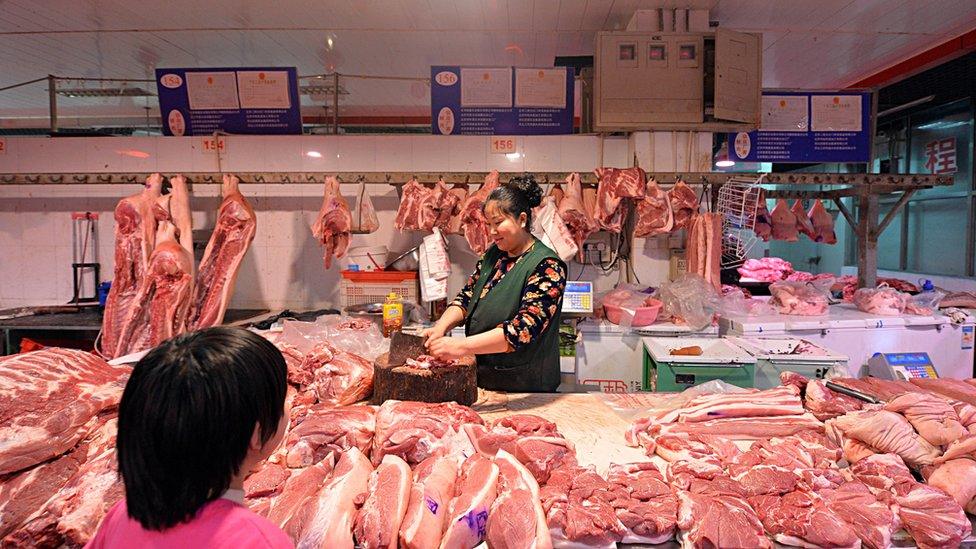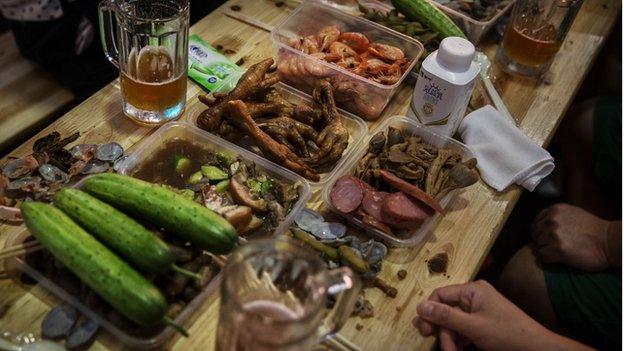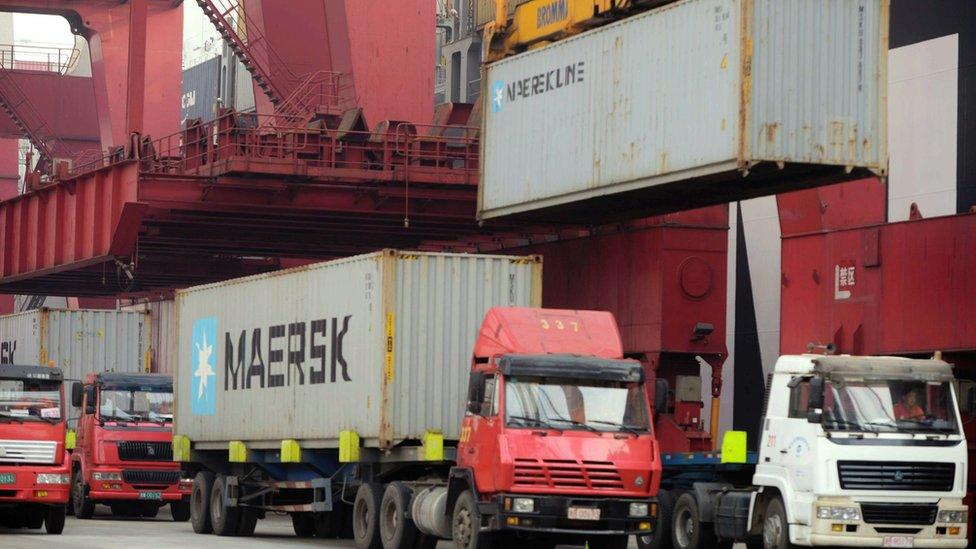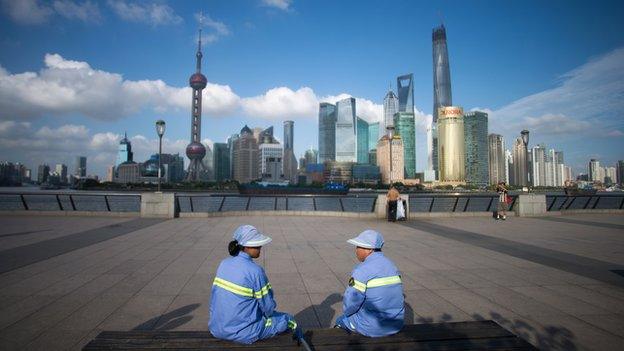Soaring food prices drive up inflation in China
- Published

Rising pork prices was a major contributor to rising consumer prices in China last month
Sharply rising food prices in China pushed up inflation to a one-year high in the world's second largest economy.
The consumer price index (CPI) unexpectedly rose to 2% in August from a year ago, mainly on higher food prices and not due to a pick up in economic activity.
On the back of that, the producer price index (PPI) fell 5.9% - marking its 42nd consecutive month of declines.
Deflation fears in China are growing as manufacturers continue to cut prices.
The decline in the PPI was the biggest drop since the global financial crisis in 2009 due to falling commodity prices and slumping demand.
Economists said the continuing fall in producer prices poses the risk of trickling through to consumer prices.
"The change in PPI is very worrying. It could affect corporate profitability, which in turn could affect consumption and the economy," said Li Huiyong, economist at Shenyin & Wanguo Securities.
Rising pork prices
Meanwhile, pork prices which weigh heavily on consumer prices in China, rose from 16.7% last year to 19.6% in August, while vegetable prices surged from 9.7% to nearly 16%.
"A sharp fall in pig numbers in recent months will continue put upward pressure on pork price inflation," said Julian Evans-Pritchard, China economist at research firm Capital Economics.
Economists are expecting the government to step up with more policy measures to stimulate the economy.
Speaking at the World Economic Forum in Dalian on Thursday, Premier Li Keqiang was the latest policymaker to reiterate that the government will continue to support the economy to ensure stable growth.
- Published9 August 2015

- Published8 September 2015

- Published1 September 2015
